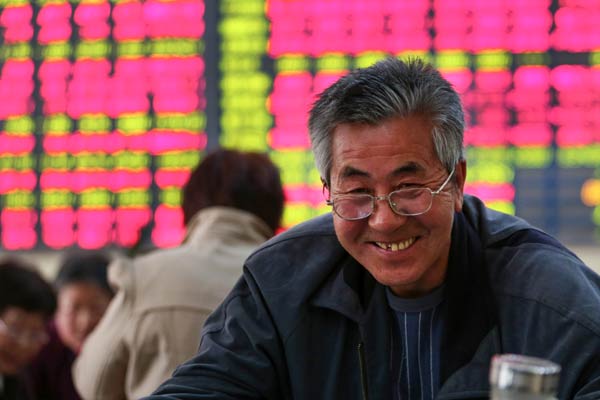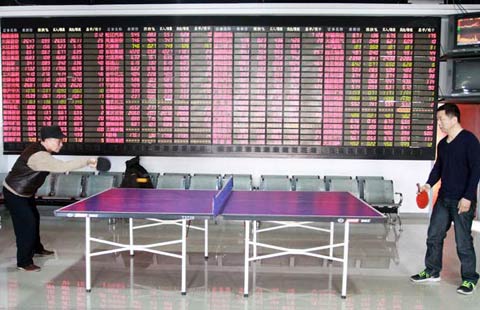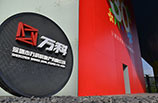More stocks eligible for short sales
By Li Xiang (China Daily) Updated: 2015-04-18 08:12
CSRC considering more tools to help investors hedge risks
 |
|
An investor checks share prices at a brokerage in Nantong, Jiangsu province, on Friday. The benchmark Shanghai Composite Index continued a sixth straight week of gains and moved up by 2.2 percent to close at 4,287.3 points.[XU CONGJUN/FOR CHINA DAILY] |
China's securities regulator on Friday said it will expand the number of equities that investors can short sell to increase supplies on the nation's bourses amid the continued surge in stock prices.
The China Securities Regulatory Commission expanded the number of qualified stocks to 1,100 under the trading program which allows investors to borrow securities to short the market.
Short selling is the sale of securities that are not owned by the seller, or those that the seller has borrowed. It is motivated by the belief that a security's price will decline, enabling it to be bought back at a lower price to make a profit.
Investors can also sell shares of exchange-traded funds at prices lower than the market price while the funds gained through short selling could be invested in qualified securities with high liquidity, said Deng Ge, the CSRC spokesman.
Institutional investors will be encouraged to participate in short selling while the regulator and the stock exchanges are working to optimize the trading mechanism and promote a market-driven principle for market players to negotiate trading fees and the time span for short selling, Deng said at a news conference in Beijing.
China has moved steadily to enrich financial derivatives in the market and to offer investors more tools to hedge risks.
Two new derivative products, the stock index futures contracts of large-cap SSE 50 index and small and medium-cap CSI 500, debuted in Shanghai on Thursday.
But the frenetic sentiment in the A-share market appeared to be unaffected by the introduction of short-selling tools in the market.
On Friday, the benchmark Shanghai Composite Index continued a sixth straight week of gains and moved up by 2.2 percent to close at 4,287.3 points.
The regulator once again warned new investors about the potential risks in the country's red-hot securities market.
The number of new stock accounts surged to 7.95 million in the first quarter, more than quadruple the amount during the same period last year, the regulator said. A majority, or 62 percent of the new investors, were born after 1980 while 5.2 percent of them are in the age above 55.
Deng said that the regulator will continue to crack down on illegal activities in margin trading and short selling as well as trading on the New Third Board, a national share transfer platform for unlisted startups. Speculation has sent the board's market value to more than 1 trillion yuan ($160 billion).
The A-share market has shown an increasingly diverse performance between the large-cap blue chips and the small-cap stocks. The index of startup board ChiNext declined 0.82 percent on Friday after plunging by nearly 5 percent on Thursday.
But the average valuations of blue chips remain in the rational territory, analysts said. Stocks that benefit from government policies including the "Belt and Road Initiative" will continue to lead the market gains, they said.
"Railway stocks are the major gainers from the government strategy ... which will help infrastructure construction in developing nations (along the Silk Road Economic Belt and the 21st Century Maritime Silk Road). Funds are now riding on the government's strategic plays," Wu Kan, a money manager at Dragon Life Insurance Co, was quoted by Bloomberg as saying.
- Bentley EXP 10 Speed 6 concept car
- Pudong marks 25 dramatic years
- Li urges banks to boost lending
- Apple to cooperate on solar power projects in Sichuan
- Money managers to boost A-share holdings
- More stocks eligible for short sales
- Coca-Cola China offers to buy Xiamen beverage firm
- Yiwu to hold first imported commodities expo

















